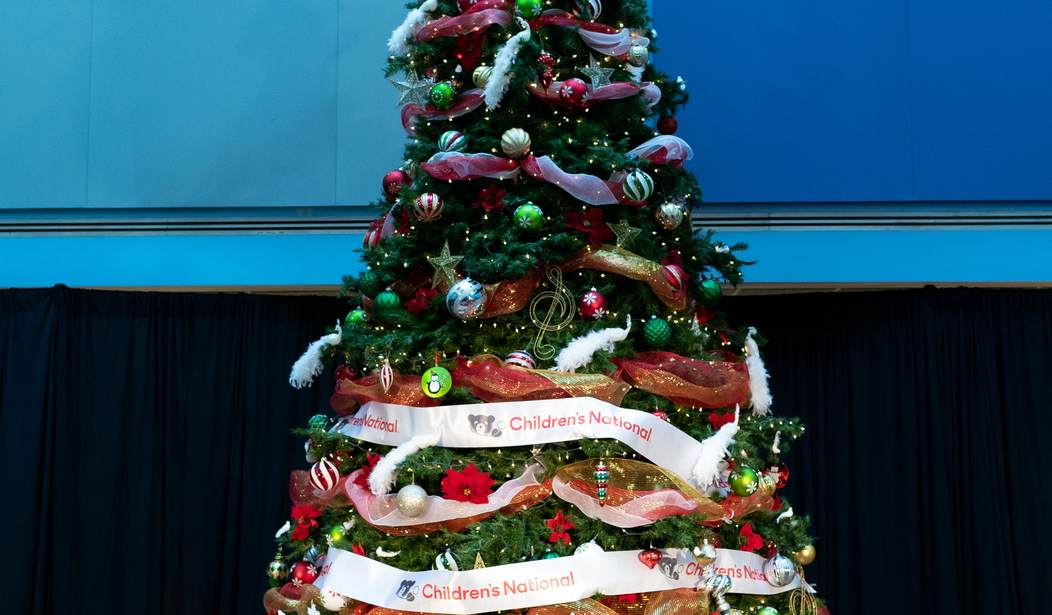BROWNSVILLE, Pennsylvania -- Just before 10 a.m., cars begin pulling into the parking lot of the Country Thrift Market, a sprawling former grocery store 40 miles from Pittsburgh.
Normally, folks in the area shop for gently used clothing, toys and deeply discounted home goods here. But today is different because Santa Claus is on site along with free cookies, provisions, frozen turkeys and hundreds of brand-new winter coats in every child's size.
Most of the cars and trucks that pull in have seen better days, but the children inside them look excited, seemingly unaware they are in need of charity.
The families at this event never stopped working during the pandemic, said Justin McAtee, the director of marketing at Food Helpers, a nonprofit organization behind the drive.
"They are too proud to take money from the government and stay home and do nothing, yet also find themselves unable to provide for their families properly because of the rising costs."
"Few in society or government sees their need, because they have jobs," added McAtee, whose organization surveys the people it helps. "The families that are here are essentially invisible."
Working Americans have had trouble this year affording basic needs amid the nation's soaring inflation rate. A staggering 6.8% surge in consumer costs -- the highest increase in four decades -- has meant necessities like food and gas have become unaffordable for many, especially middle- and low-income households whose salaries haven't kept up with inflation.
While the media usually focuses on folks quitting their jobs in the "Great Resignation," the people at this event often work more than one job only to be crushed by rising costs, McAtee said.
"Say you are a working mom and dad and both are paid $9.50 an hour. If both of them just get a 50-cent-an-hour raise, they not only lose their ability to get assistance for food, that family is now not eligible for rental, utility or child care assistance. So on that very small increase in income, they have now found themselves in a real economic dilemma," he said.
Recommended
"These situations are the vast majority of the families that we serve -- working families who are facing both a loss of assistance as well as the impact of rising costs."
Since last year, data from the U.S. Labor Department shows the price of gas has gone up a whopping 58 percentage points, utilities 25%, bacon 21%, chicken 9%, and eggs, coffee, apples, flour and milk around 6% to 8%. All of those items are just basic necessities.
Want to buy your kid a bike for Christmas? That's up over 9 percentage points. Want a used car to replace that old banger you're driving? Good luck, because that's gone up a mind-blowing 31 percentage points.
The suffering of America's working families often goes unseen because they don't fit into government data points on poverty. But make no mistake, you encounter them every day, toiling in industries like service, manufacturing, delivery and healthcare -- jobs that make our lives better by making sure we get what we need.
McAtee said an estimated 20,600 individuals are considered "food insecure" in Greater Washington County, where Brownsville is located, and "46% of that population or about 9,600 individuals may not be eligible for state and federal food assistance programs.
"Those numbers were pre-COVID. They have only increased with the pandemic and even more so with inflation," said McAtee, referring to stats from Feeding America, the largest domestic hunger-relief organization in the nation.
Cherise Sandrock, Food Helpers' director of development, helps send boxes of goods to the "food deserts" in remote parts of the county. Currently, the organization distributes provisions once a week, but by January that will increase to nearly every day, Sandrock said.
"Simply put, when inflation increases food insecurity increases," McAtee explained.
Almost none of the families at the event would give their names or comment, such is the stigma of being in a needy position. One family -- the Speichers -- came from 40 miles away for the coat drive. The mom wouldn't give her first name, but said she was happy her two young daughters got to talk to the real St. Nick and eat a few Christmas cookies.
"To get a little extra help, especially around the holidays, just makes it even more special," she said. "We are forever grateful for such a great organization to help us in need."
Salena Zito is a CNN political analyst, and a staff reporter and columnist for the Washington Examiner. She reaches the Everyman and Everywoman through shoe-leather journalism, traveling from Main Street to the beltway and all places in between.

























Join the conversation as a VIP Member